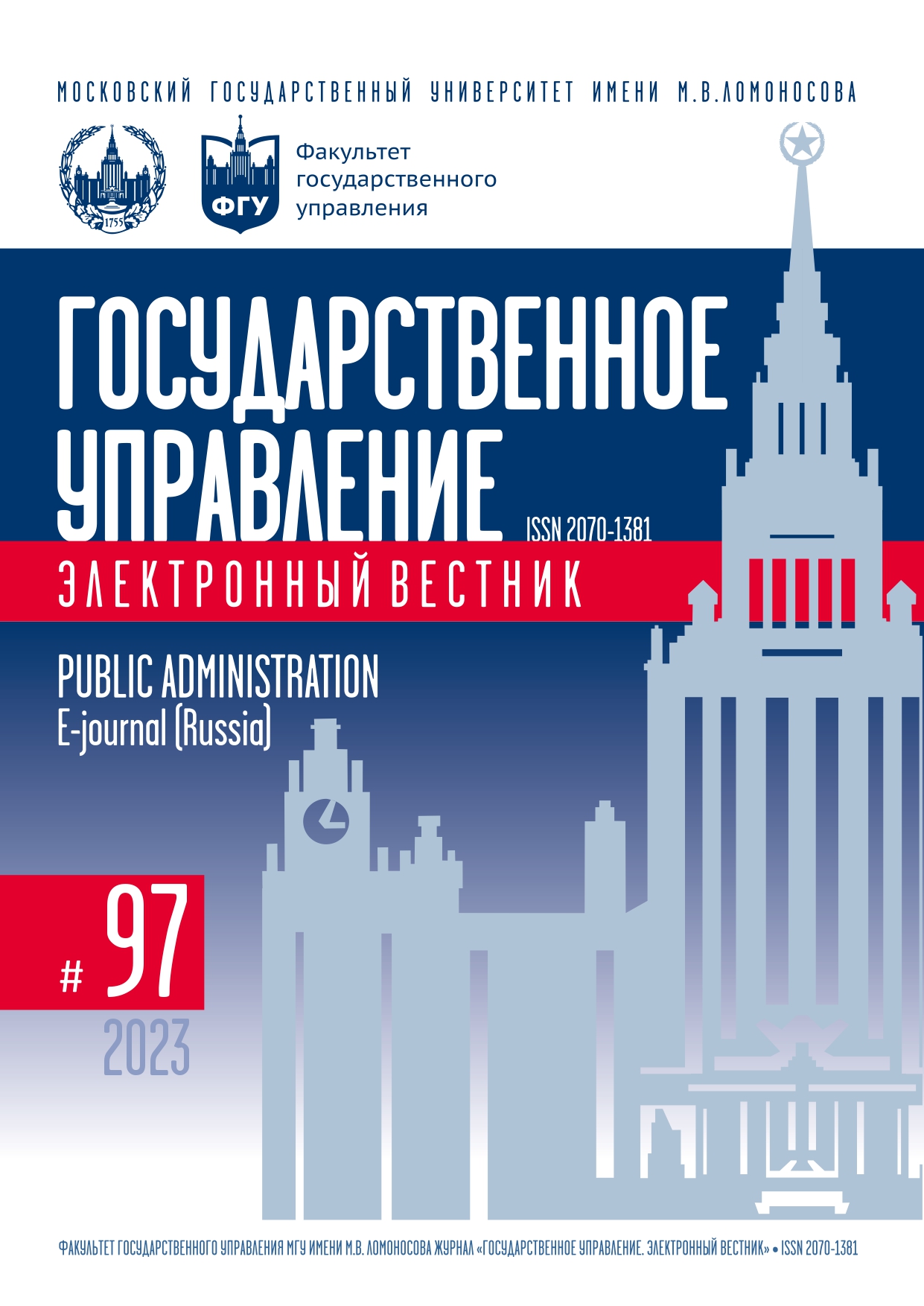The Concept of «Russian Nation» and Formation of Civic Identity in the Perception ofthe North Caucasus Youth
Keywords:
All-Russian civic identity, Russian nation, civic unity, national policy, youth policy, North CaucasusAbstract
The article presents the results of a survey conducted among the North Caucasus youth regarding the understanding of the semantic content of the «Russian nation» concept, as well as factors that affect the formation of the all-Russian civic identity (positively or destructively). It is shown that despite the widespread practice of using the concept of «Russian nation» in
the official socio-political discourse, including on the agenda of youth policy, a full understanding among young people of this dogmatic phrase meaning has not developed yet. It is only fragmentally comparable with the definition fixed in the Strategy of the State National Policy of the Russian Federation for the period up to 2025, and it has the character of compliance with one of the formal criteria of some kind (the presence of citizenship of the country, residence or the fact of birth on its territory, ethnicity to Russians). The perception of oneself as a subject endowed not only with a set of characteristics inherent in the members of the Russian nation, but also with a full awareness of responsibility for the fate of the country and its future is practically not typical for the reflection of young people regarding the semantic content of the concept under consideration. The survey results show that young people consider that the most significant for forming civic identity are education, state policy and specific actions of the authorities (these factors have a very important, but ambiguous in terms of consequences influence today), the media (destructive influence). The article also provides an overview of the main subjects implementing research on the formation of national unity and strengthening of civic identity at the regional and federal levels.
References
Авдеев Е.А., Воробьев С.М. Общероссийская гражданская идентичность молодежи Северного Кавказа: основные вызовы и риски конфликтности // Политическая экспертиза. ПОЛИТЭКС. 2021. Т. 17. № 1. С. 69–86. DOI: 10.21638/spbu23.2021.106
Авдеев Е.А., Ерохина М.Е. Ценностные основания идентичности молодежи Северного Кавказа // Вестник Нижегородского университета им. Н.И. Лобачевского. Серия: Социальные науки. 2022. № 1(65). С. 56–65. DOI: 10.52452/18115942_2022_1_56
Авксентьев В.А., Аксюмов Б.В., Гриценко Г.Д., Иванова С.Ю., Шульга М.М. Формирование российской идентичности на Северном Кавказе: институциональные и социокультурные рамки // Политическая экспертиза: ПОЛИТЭКС. 2022. Т. 18. № 1. С. 72–86. DOI: 10.21638/spbu23.2022.105
Адиев А.З., Бийжанова Э.К., Щербина Е.А. Российская гражданская нация: взгляд из Северного Кавказа // Гуманитарий Юга России. 2022. Т. 11. № 1. С. 119–133. DOI: 10.18522/2227-8656.2022.1.9
Адиев А.З., Щербина Е.А. Общероссийская идентичность на Северном Кавказе: pro et contra // Вестник Российской нации. 2021. № 3. С. 54–63.
Аствацатурова М.А., Дзахова Л.Х. Содержательно-структурная этнополитическая синкретизация российской гражданской идентичности (некоторые северокавказские практики) // Вопросы политологии. 2021. Т. 11. № 8(72). С. 2243–2255. DOI: 10.35775/PSI.2021.72.8.005
Гриценко Г.Д. Политика идентичности на Северном Кавказе: экспертное сообщество об успехах и проблемах ее реализации // Тенденции развития науки и образования. 2022. № 87–7. С. 138–140.
Дробижева Л.М. Российская идентичность: поиски определения и динамика распространения // Социологические исследования. 2020. № 8. С. 37–50. DOI: 10.31857/S013216250009460-9
Полунов А.Ю. Общероссийская гражданская идентичность: концептуальные основы и региональное воплощение // Государственное управление. Электронный вестник. 2023. № 96. С. 124–133. DOI: 10.24412/2070-1381-2023-96-124-133
Кишинская В.С. Качественные данные и методы социологического исследования // Петербургская социология сегодня. 2011. Т.1. С. 366–373.
Тощенко Ж.Т. Памяти Л.М. Дробижевой (13.01.1933–11.04.2021) // Социологические исследования. 2021. № 4. С. 127–128.
Хайкин С.Р., Бережкова С.Б. Социологический мониторинг межнациональных и межконфессиональных отношений Федерального агентства по делам национальностей // Мониторинг общественного мнения: Экономические и социальные перемены. 2016. № 5. С. 97–110. DOI: 10.14515/monitoring.2016.5.07
Giddens A. Modernity and Self-Identity: Self and Society in the Late Modern Age. Cambridge: Polity Press, 1991.
Goffman E. Presentation of Self in Everyday Life. New York, Garden City: Doubleday, 1959.
Social Identity and Intergroup Relations / ed. by H. Tajfel. Cambridge: Cambridge University Press, 1982.
Turner J. Rediscovering the Social Group: A Self-Categorization Theory. Oxford: Basil Blackwell, 1987.

